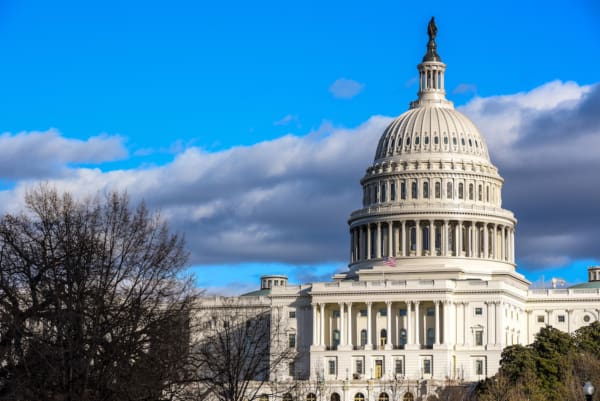
Congress is now in ‘lame duck’ session until January. Though this is normally a time when expectations for Congressional action are low, the National Committee expects our elected representatives to act on behalf of seniors and other struggling Americans hit hard by the pandemic. NCPSSM president and CEO Max Richtman has just sent a letter to Congress requesting action on several high priority issues for seniors.
“On behalf of the National Committee to Preserve Social Security and Medicare’s millions of members and supporters, I am writing to urge you and your colleagues to prioritize the needs of America’s seniors as you consider funding legislation during the remaining days of the 116th Congress.” – Max Richtman, president and CEO, National Committee to Preserve Social Security and Medicare
Seniors are the hardest hit by the coronavirus pandemic. Eight out of 10 deaths from COVID in the U.S. have been in adults 65 years old and older. Whether as part of an omnibus funding bill, continuing resolution or COVID relief package, The National Committee is urging lawmakers to pass urgently needed measures for seniors, including:
The “Notch”
Unless Congress takes action, workers born in 1960 and 1961 will take a hit in their future Social Security retirement benefits, because of the Corona-induced decline in the average wages used to calculate those benefits. We support Congressman John Larson’s “Social Security COVID Correction and Equity Act” which would correct this notch in benefits for this age group without affecting other beneficiaries.
Social Security Boost
The 2021 Social Security cost-of-living adjustment (COLA) is a scant 1.3% (or $20 more per month for the average beneficiary). This is not sufficient to mitigate the financial pain that many seniors are experiencing during the pandemic. Rep. Peter DeFazio has introduced a bill (H.R. 8598) to provide beneficiaries with a 3% monthly increase (or a $250 per month flat increase), which would go a long way toward helping seniors meet their expenses during the current crisis.
Payroll Tax Deferrals
In August, President Trump issued an executive order allowing employers to defer workers’ payroll tax contributions for the rest of the year. Between January 1, 2021 and April 30, 2021, these employees will be required to pay back their deferred payroll taxes. As a result, the amount of their FICA taxes will double for the first four months of 2021. The National Committee supports easing the burden for workers affected by this hardship.
Medicare & Medicaid Extenders
The National Committee urges Congress to extend a handful of protections for lower-income Medicare and Medicaid beneficiaries, including ‘Money Follows the Person’ (which provides funding for states to help skilled nursing care patients to remain in their homes) and impoverishment protections for the spouses of Medicaid recipients receiving long-term care.
Outlook
Some of the items on this lame-duck wish list could be incorporated in to a continuing resolution (CR) that Congress must pass by December 11th in order to keep the government funded. Others would require separate legislation. Any measures improving Social Security benefits would need to clear a 60-vote hurdle in the Senate. Based on what we’ve seen so far, GOP Majority Leader Mitch McConnell is unlikely to clear the path for any legislation improving Social Security. The Senate runoff elections in Georgia will determine whether he will maintain the power to obstruct during the 117th Congress, or whether a new majority which cares about seniors’ needs will take over.
*****************************************************
For more news and insight, visit our Lame Duck Session webpage.


